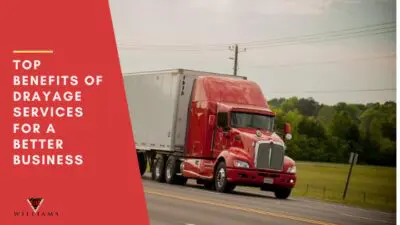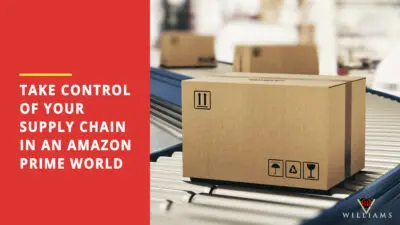
Trucks move the vast majority of freight that travels across the United States. In fact, about 71 percent of all the tonnage moved in the U.S. sits, at some point, on the back of a truck.
And without trucks, even the most basic services would become unavailable.
A World Without Truckers: What Would it Look Like?
When truck drivers in Brazil went on strike in 2018, they paralyzed the country’s economy. Gas stations ran out of fuel, grocers stopped carrying necessities and Sao Paulo – Brazil’s largest city and its financial hub – declared a state of emergency.
The same thing would happen here, in the U.S., except on a larger scale. The American Trucking Association outlined what would happen if truck travel were disrupted, pointing out that trucks keep several industries afloat. Negative impacts would ripple through nearly every American and international industry, including:

- Public works, which can’t operate without fuel. That includes police, fire, rescue and other public services, as well as trash pick-up and sanitation.
- The financial industry, resulting in complete exhaustion of actual currency as people make normal withdrawals. ATMs and brick-and-mortar bank locations would run out of cash, which is delivered by armored truck, and regular bank operations would stop.
- The food industry, resulting in consumer panic and food shortages. Additionally, perishable items would virtually disappear within three days, and supplies of clean drinking water would run dry within less than a month.
- The healthcare industry, resulting in a dearth of medical supplies that save lives. Food shortages would also affect nursing homes and hospitals within the first few days – particularly those that rely on daily deliveries – and stocks of prescription drugs would plummet. Key medical technology couldn’t operate with radiopharmaceuticals and things like oxygen tanks, which are nearly always delivered by truck.
- The manufacturing industry, which would grind to a halt as assembly lines shut down.
- The retail industry, which would result in shortages of all consumer goods – especially considering that consumer behavior triples the rate of inventory turnover.
- The transportation industry, which likely wouldn’t survive long – fuel shortages would grind everything to a halt. Gas stations, on average, get deliveries every two-and-a-half days, so fuel would run out in a matter of days. That goes for airlines and railways, too.
- The workforce, because without gas for vehicles and mass transit being far from plausible in most areas, nobody can get to work.
Trucks Move the Economy
As evidenced by what happened in Brazil – and what could happen here without the lifeblood of many of the systems we have in place – a world without truckers wouldn’t be sustainable at all. Truckers essentially move the entire U.S. economy, making it impossible for life as we know it to continue.
Your company might also rely on trucking, and if it does, it’s essential to ensure that you’re working with the best in the industry. You can learn more about our freight logistics services, trucking and transportation services, warehousing and distribution services, and intermodal trucking services or call 256-831-5580 for more information.
About BR Williams Trucking & Logistics
BR Williams, a family-owned Trucking, Warehousing, Fulfillment & Logistics Company has been serving customers since 1958. We specialize in removing the supply chain frustrations our customers have by developing custom-made solutions. We offer nationwide transportation services through our fleet and logistics division. Our multiple fulfillment and distribution warehouses in Alabama span over 1.7 million square feet. Our core values are HONESTY, INTEGRITY, SERVICE. We still serve our first customer that was established in 1958.
To discuss your supply chain needs, please contact us online or call (800) 523-7963



